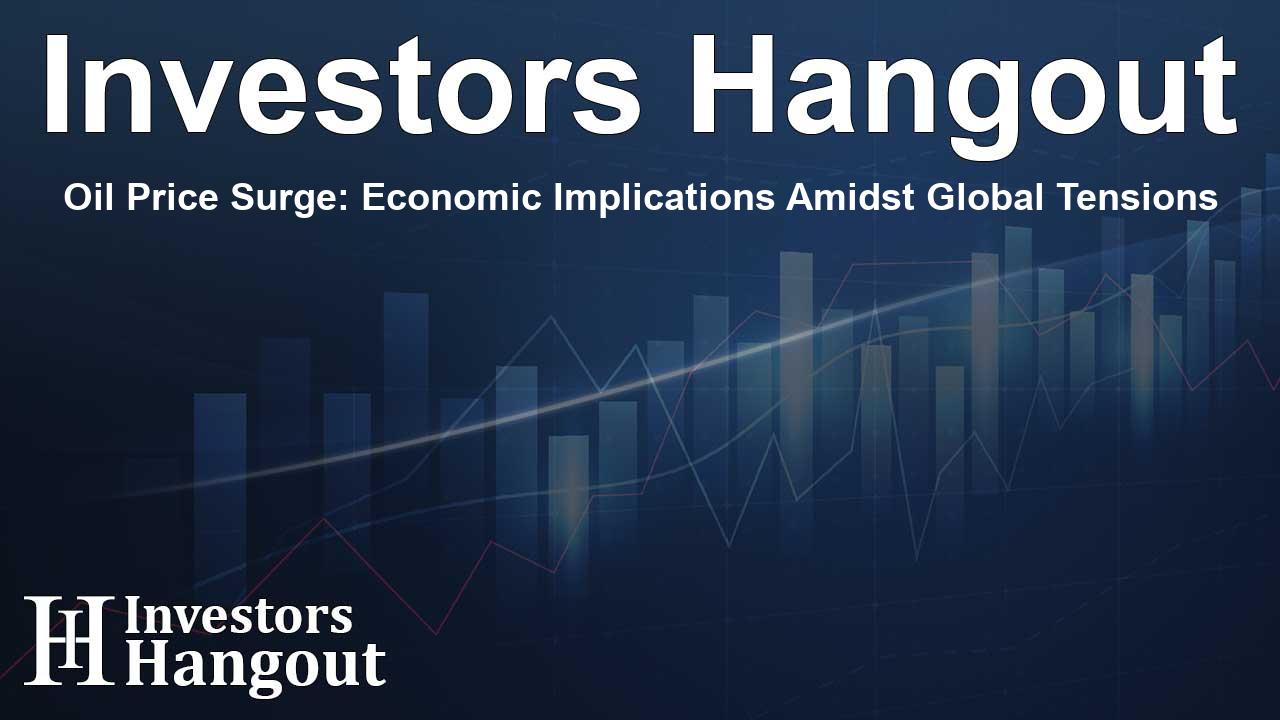Oil Price Surge: Economic Implications Amidst Global Tensions

Oil Prices Experience Significant Weekly Gains
This week has marked a critical turning point for oil prices, which are on track for their largest weekly increase in over a year. As tensions escalate in the Middle East, the ripple effects are beginning to affect global markets ahead of the weekend.
Market Reactions to Escalating Conflicts
While many equity indexes and stock futures showed positive movement, the gains are tempered as investors remain cautious. Speculations regarding potential retaliatory actions by Israel against Iran contribute to this uncertainty. The current geopolitical climate is creating a complex backdrop for investors, as they assess risks and opportunities.
Weekly Insights on Oil Futures
Brent crude futures are poised to gain approximately 8% this week, marking their most significant increase since February 2023. Similarly, U.S. crude futures are also on course for an 8.2% weekly rise, the most considerable uptick since March of the previous year. These surges reflect market sensitivity to current events.
Political Developments Impacting Market Sentiment
Amid this turmoil, U.S. President Joe Biden has expressed a belief that an “all-out war” is unlikely. However, the conversation surrounding potential actions against Iran's oil facilities remains a topic of concern. The interplay of political decisions and market responses underscores the volatility that reigns in today's financial landscape.
Consumer Sentiment and Inflation Outlook
As oil prices rebound from previous lows, there's a palpable tension in world stocks and investors’ risk appetite. Should geopolitical tensions persist, a reassessment of inflation forecasts may prompt a shift in investment strategies. Investors are contending with the prospect that rising oil prices could further complicate inflation forecasts.
The Federal Reserve's Position and Economic Stability
Federal Reserve Chair Jerome Powell is undoubtedly taking note of the situation, as the risk of escalating conflict adds pressure. The central bank's approach to interest rate cuts is also under scrutiny; a premature easing of policy could lead to inflationary spikes. Hence, Powell emphasizes a gradual approach to monetary policy, balancing economic indicators with emerging geopolitical risks.
Indicators for Economic Health
Later today, attention will turn to the September nonfarm payrolls report, which is expected to reveal insights into the labor market's resilience. The strength observed in the recent services sector data suggests a stable economic environment as we approach the release of key indicators.
Global Economic Prospects and Central Bank Strategies
The day is further marked by various speeches from European Central Bank policymakers, alongside remarks from the Bank of England's chief economist, Huw Pill. Observers are keen to see if Pill echoes a dovish perspective akin to his counterpart Andrew Bailey, especially in light of weakening inflationary pressures.
Positive Developments in Port Operations
In a twist of good news, U.S. East Coast and Gulf Coast ports began reopening after reaching a wage agreement, resolving an extensive work stoppage. This development is a crucial indicator of improved labor relations within the industry, which can have broader implications for supply chain stability and market confidence.
Looking Ahead: Key Economic Indicators
Several key developments warrant attention moving forward:
- Release of U.S. nonfarm payrolls report for September
- Speeches from Bank of England's Huw Pill
- Address by various European Central Bank policymakers
As the market navigates these complexities, stakeholders will be keeping a close watch on how geopolitical factors, coupled with economic data, shape the landscape in the days to come.
Frequently Asked Questions
What factors are driving the increase in oil prices?
The surge in oil prices is largely due to escalating tensions in the Middle East, particularly concerns about potential retaliatory actions between Israel and Iran.
How do rising oil prices affect global markets?
Increasing oil prices can lead to inflationary pressures, affecting consumer sentiment and prompting investors to reassess their portfolios in light of changing economic conditions.
What is the Federal Reserve’s current stance?
The Federal Reserve is likely to maintain cautious interest rate cuts, closely monitoring geopolitical events that could impact inflation and economic stability.
What should investors look for this week?
Investors should pay attention to the release of the U.S. nonfarm payrolls report, alongside speeches from European Central Bank officials, as these may provide insights on the economy's direction.
Why are the port reopenings significant?
The reopening of U.S. East Coast and Gulf Coast ports indicates improved labor relations, which can enhance supply chain stability and support economic recovery.
About Investors Hangout
Investors Hangout is a leading online stock forum for financial discussion and learning, offering a wide range of free tools and resources. It draws in traders of all levels, who exchange market knowledge, investigate trading tactics, and keep an eye on industry developments in real time. Featuring financial articles, stock message boards, quotes, charts, company profiles, and live news updates. Through cooperative learning and a wealth of informational resources, it helps users from novices creating their first portfolios to experts honing their techniques. Join Investors Hangout today: https://investorshangout.com/
Disclaimer: The content of this article is solely for general informational purposes only; it does not represent legal, financial, or investment advice. Investors Hangout does not offer financial advice; the author is not a licensed financial advisor. Consult a qualified advisor before making any financial or investment decisions based on this article. The author's interpretation of publicly available data shapes the opinions presented here; as a result, they should not be taken as advice to purchase, sell, or hold any securities mentioned or any other investments. The author does not guarantee the accuracy, completeness, or timeliness of any material, providing it "as is." Information and market conditions may change; past performance is not indicative of future outcomes. If any of the material offered here is inaccurate, please contact us for corrections.